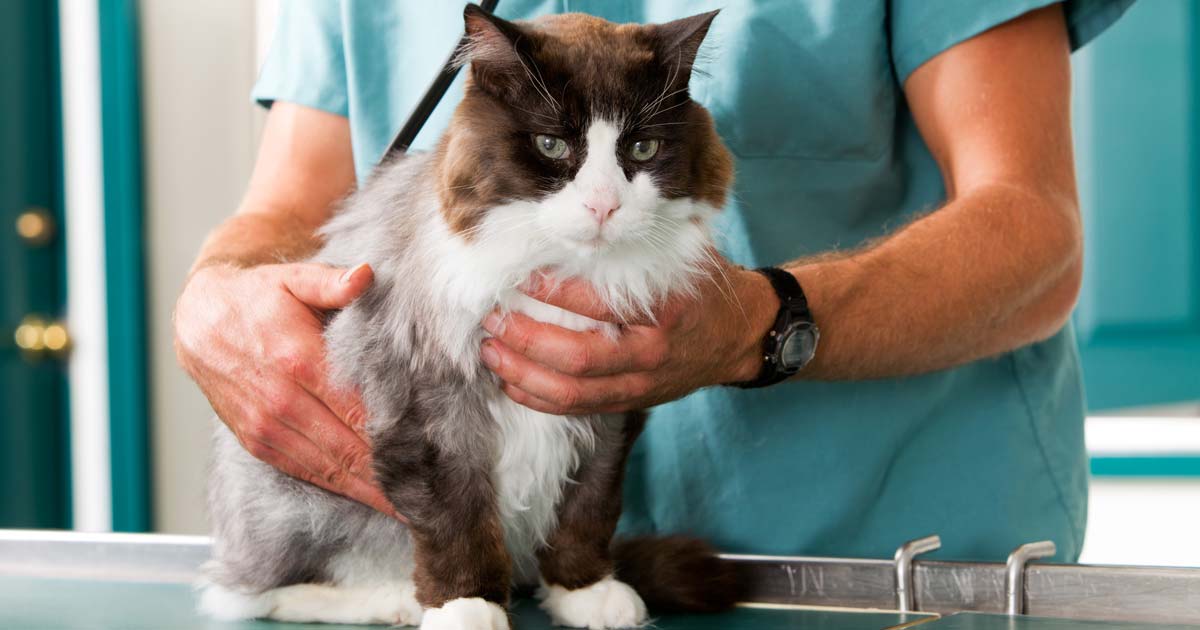The annual vaccination appointment is important for a number of reasons, there’s no denying that. However, it should be considered an annual health check or pet MOT, as many owners like to put it, rather than a yearly visit to the vets – a distinct difference exists.
By law we have to take our cars for an MOT every year (perhaps we should propose a similar piece of legislation for pets, but that’s a whole other topic).
The nearest thing to this in pet ownership is kennels or insurance companies requiring up-to-date vaccinations – the latter being less commonly known and often not until too late.
But if your brakes were failing, would you wait until the MOT to get them fixed? Hopefully not. Lesser problems you may chance, only to be told the car has failed the MOT and needs some extra work before it can be ticked off for another year.
Saving for a rainy (vaccination) day

While a pet’s annual health check does not consist of a pass or fail, all too common scenarios exist where vaccinations can not (or should not) be given on that occasion, due to concurrent health problems that must be addressed first.
These include, but are not limited to, ear infections, anal gland/sac infections, pyoderma, or generally anything that requires antibiotic or potentially immunosuppressive treatment.
Whether it’s due to lack of understanding or trying to save a few quid by avoiding paying for a consult twice, many owners haven’t grasped this concept and seemingly save up their pets’ chronic ailments for the “annual health check”.
This does no one any favours for a number of reasons:
-
If you book in for a vaccine on the telephone and do not let reception know your dog has also been lame for 6 months, itching for 3 weeks and scooting his bottom for 2 weeks, then the 10-minute vaccine appointment quickly develops into a half-hour breakdown of all these ailments.If every vaccination appointment follows this pattern, the whole consult list descends into mayhem, causing the vet to run late and get stressed, and the clients to become grouchy because they are kept waiting.Our human GP counterparts have been trying to tackle the same problem in recent years by displaying posters around waiting rooms expressing that they can only allocate one appointment per problem… maybe we should do the same.
- If an animal has a number of problems, it is likely at least one of them (or the treatment of one) will contraindicate vaccination until a resolution is achieved. Therefore, it was completely pointless waiting for the vaccine to be due to bring them to the vet.
- Welfare. This should really be first on the list. As an owner, it’s your responsibility to look after your pet – this includes seeking veterinary advice and treatment when necessary. It’s unfair to let an animal suffer longer than necessary to save a few quid on consult fees.
-
This works out as a false economy in the long run. For example, the ear infection. If you bring your dog to us sooner rather than later, it may need one course of treatment with medicated ear drops.However, if the infection is left to worsen because you want to wait until the vaccine is due, your dog may need an extended course of treatment, plus systemic anti-inflammatories or antibiotics. It may even require sedation for thorough flushing of the affected ear canal.Forking out for an extra consult a few weeks before the vaccine booster is considerably cheaper than repeated appointments, further medication and flushing.
- Vaccine booster timings are not set in stone. The data sheets may have pretty strict guidelines, but most practices allow a grace period and guidelines from organisations such as the WSAVA change all the time.
This means, if you were concerned about your pet and wanted to bring them in “early”, but it wasn’t something that would affect the immune response to the vaccine, you may be able to kill two birds with one stone after all.
Unnoticed, not ignored

While it is extremely irritating when owners turn up for the vaccine appointment with a list of problems or questions, the pet MOT is, however, extremely useful for picking up subtle cues that something may not quite be right.
It is during the annual health check when we notice patterns in weight loss or pick up on an off-hand comment such as the hat rack of a cat in front of you is absolutely ravenous.
It’s these alarm bells that indicate underlying issues owners may not have picked up on, which is an entirely different kettle of fish.
An owner missing the medical relevance of a small factor not thought to be significant is completely different from an owner who knew with certainty his or her dog had been lame for six months, yet chose not to do anything about it.

Leave a Reply